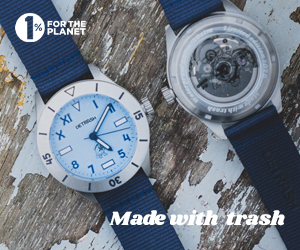PHYSIOLOGY
Thanks to the latest non-invasive techniques, it has been possible to better study babies’ skin. The skin provides a vital physical barrier to protect us from the environment, and it has been demonstrated that it changes constantly during the first two years of life.
Early on, the skin is more vulnerable. The pH is more alkaline, the trans-epidermal water loss is greater, the lipid content and natural moisturising factor are lower, and the epidermis is thinner, making the skin more prone to physical, chemical, and bacterial assault.
There is also a lack of ‘mature’ sweat glands with reduced capacity to cool down, making a baby’s body more delicate to heat changes, both internal and external. Additionally, a lower concentration of melanin protecting the epidermis will make the body more vulnerable to UV rays. Pure protective skincare can benefit baby’s skin.
{module In-article Banner}
PSYCHOLOGY
The skin and the brain are deeply connected, a relationship that begins in the early embryo – both organs develop from the same tissue layer. This close relationship during embryogenesis explains why the skin is so closely connected to the mind and one’s emotional state – emotional stress can worsen the skin’s health, and, similarly, many skin complaints can be triggered or aggravated by psychological tensions.
Because of this fundamental connection with the brain, the skin cannot be considered a superficial organ; it expresses the Unity of Life, the constant dialogue between the subconscious and reality. This happens mostly during transition periods in our life and changes when we have to make decisions: the uncertainty will manifest on our skin. Many skin complaints can be helped by clarifying and softening our relationship with reality.
The power of skin-to-skin contact is evident in its ability to increase a baby’s physiological and psychological development. Our sense of touch is controlled by the somatosensory system, a network responsible for all our sensations, which are detected by mechanoreceptors, thermoreceptors, proprioceptors, pain receptors, and chemoreceptors. Some of these are present in the skin.
If you consider that in just one square centimetre of the skin there are four meters of nerve fibres, 200 nerve-endings of which detect painful stimuli, 25 nerve-endings sense touch, 12 sense heat, and two sense cold, you can realise how the skin is perceptive to the many changes of the external environment and how these might positively or negatively affect the brain and the future memories correlated.
Research on Eastern-European orphans adopted in the USA has shown that a lack of affection during their infancy had affected the development of their brain, the early deprivation also later contributing to anxiety and poor relationships. Scientific evidence, therefore, supports the fundamental role of love, affection, and physical touch in building positive relationships, social bonds, and general healthy brain development.
With these considerations in mind, massaging a baby’s skin with high-quality organic oils, nourishing properties will not only revitalise the epithelial surface and create a better skin barrier, but will also create new neurological connections in the emotional brain. A parent’s touch will produce a sense of relaxation and provide security, creating a life-long memory of comfort. This helps us to understand why massage in adults is deeply relaxing, making us fall asleep and sometimes even cry as we subconsciously reconnect with a memory of our childhood.
Through skin-to-skin contact with cuddles and affection, we can not only produce a sense of wellbeing in our children but also transfer our loving energy. Have you ever realised that our arms are very close to our heart and represent, in a certain way, its extension?
More articles by Dr Spiezia HERE













